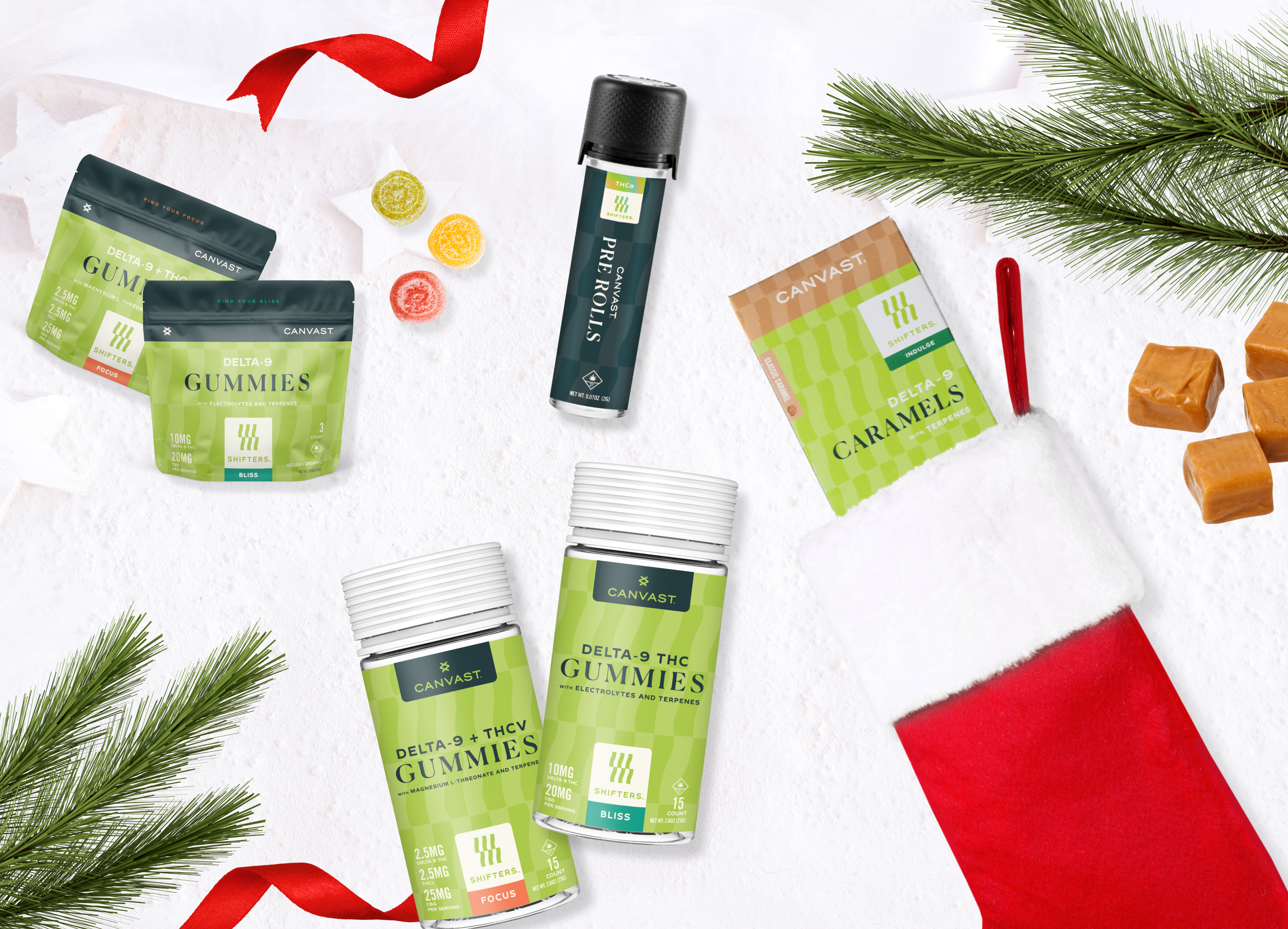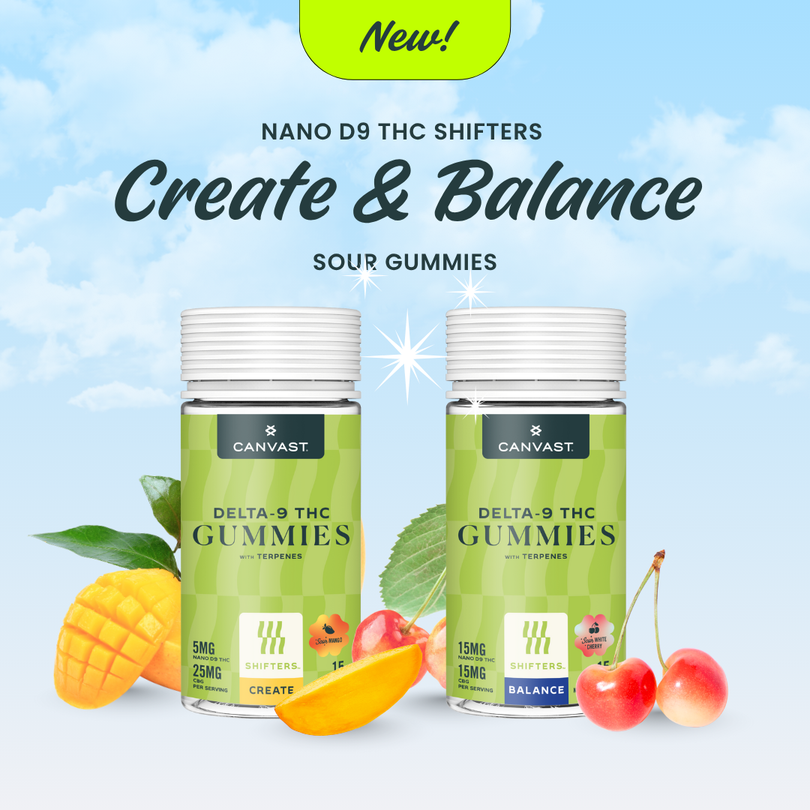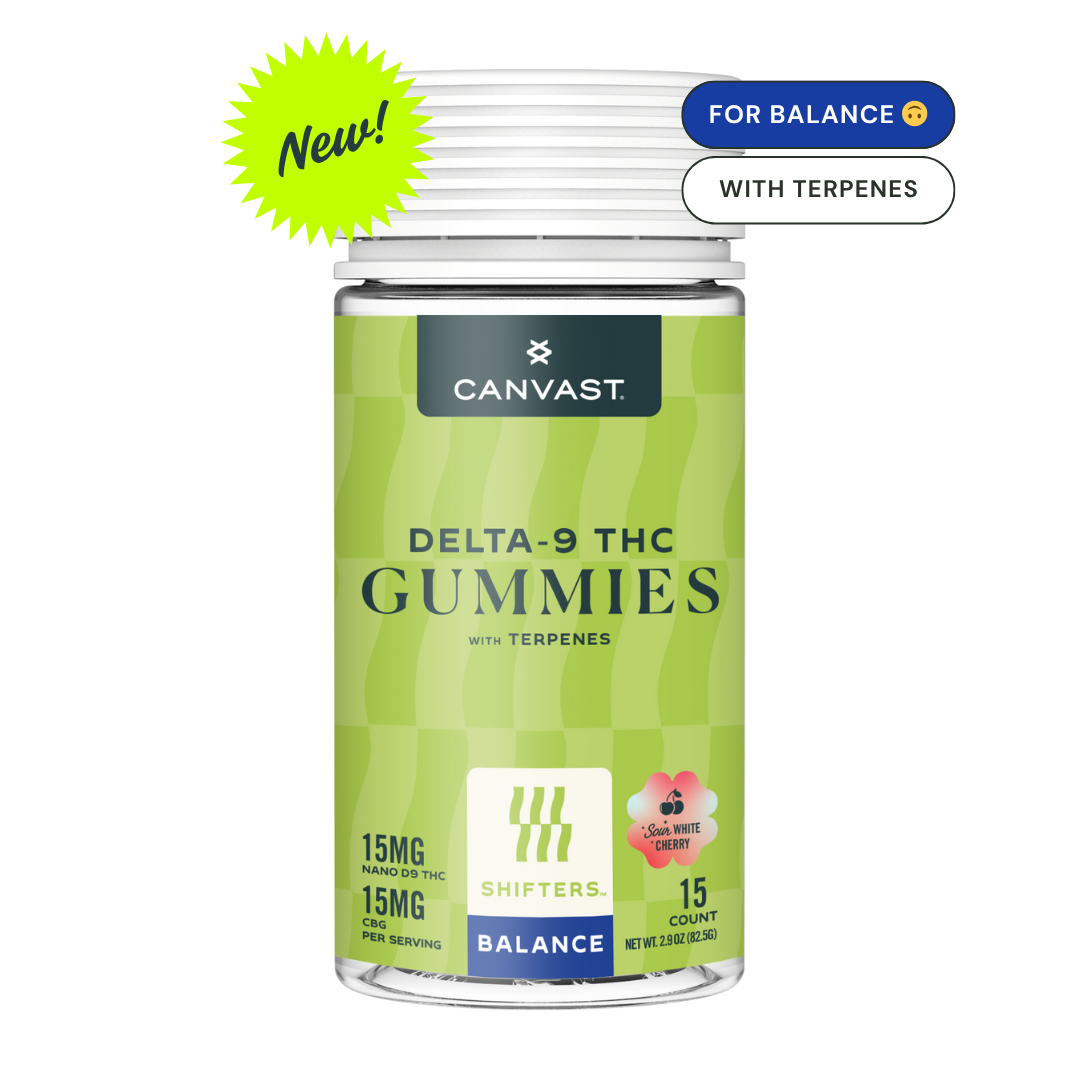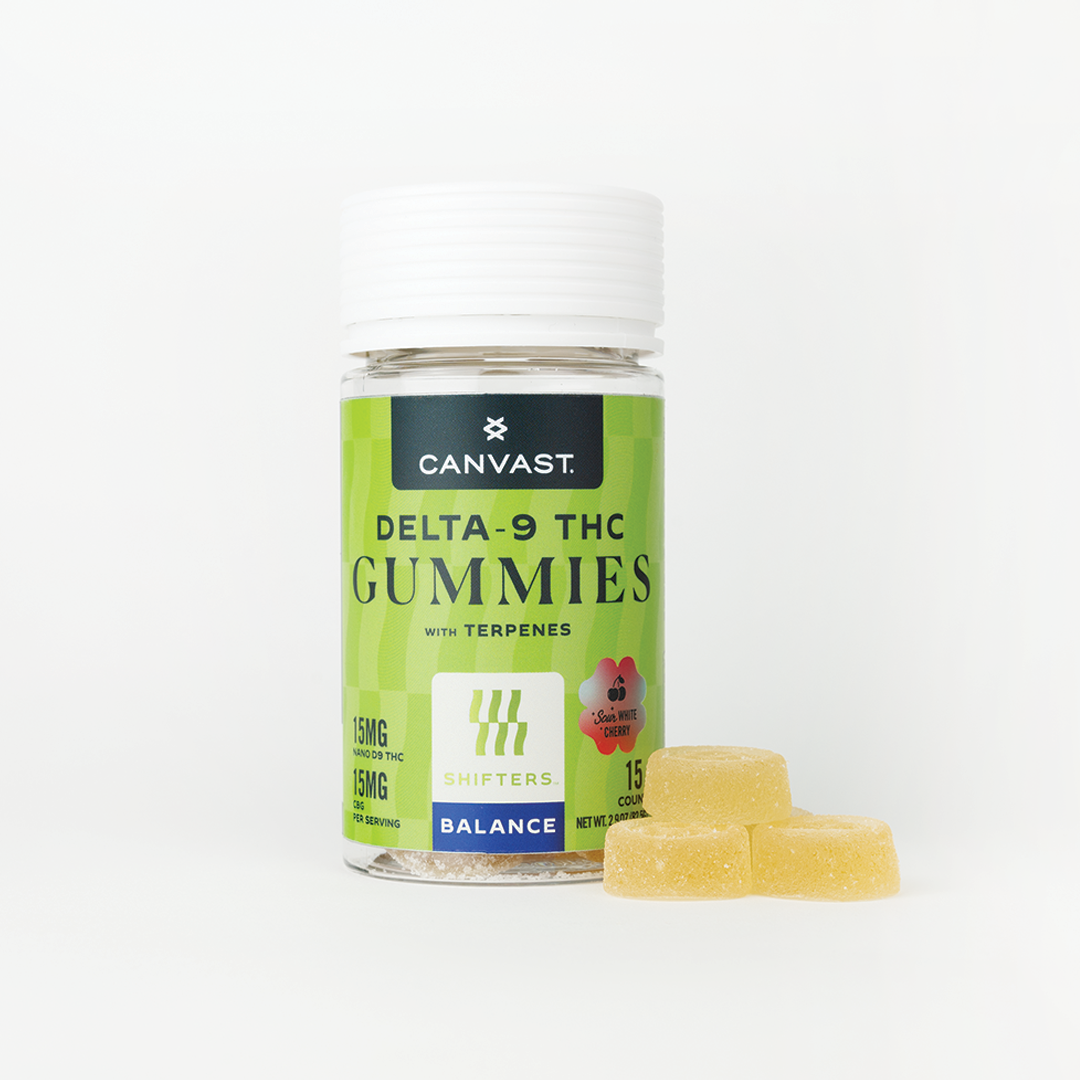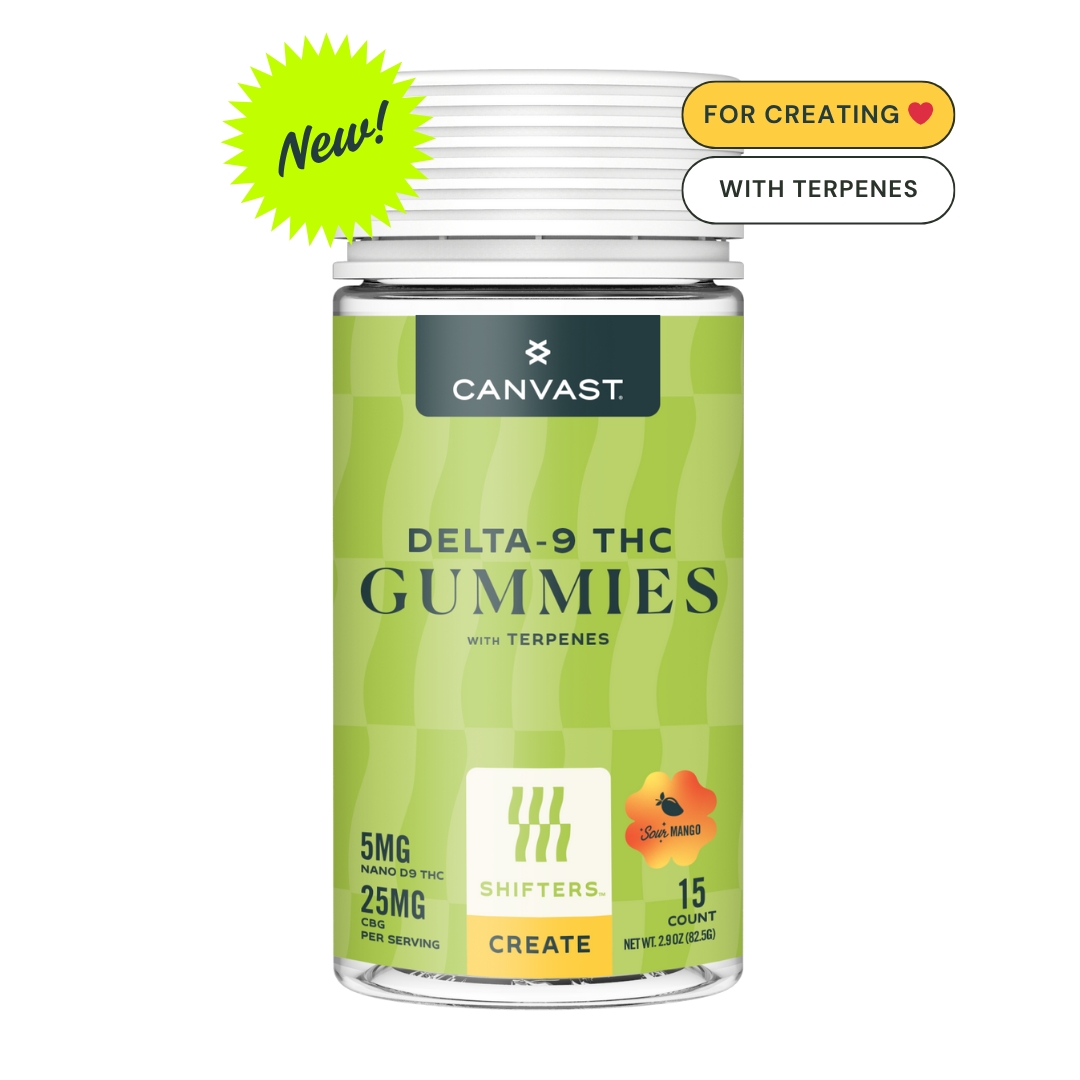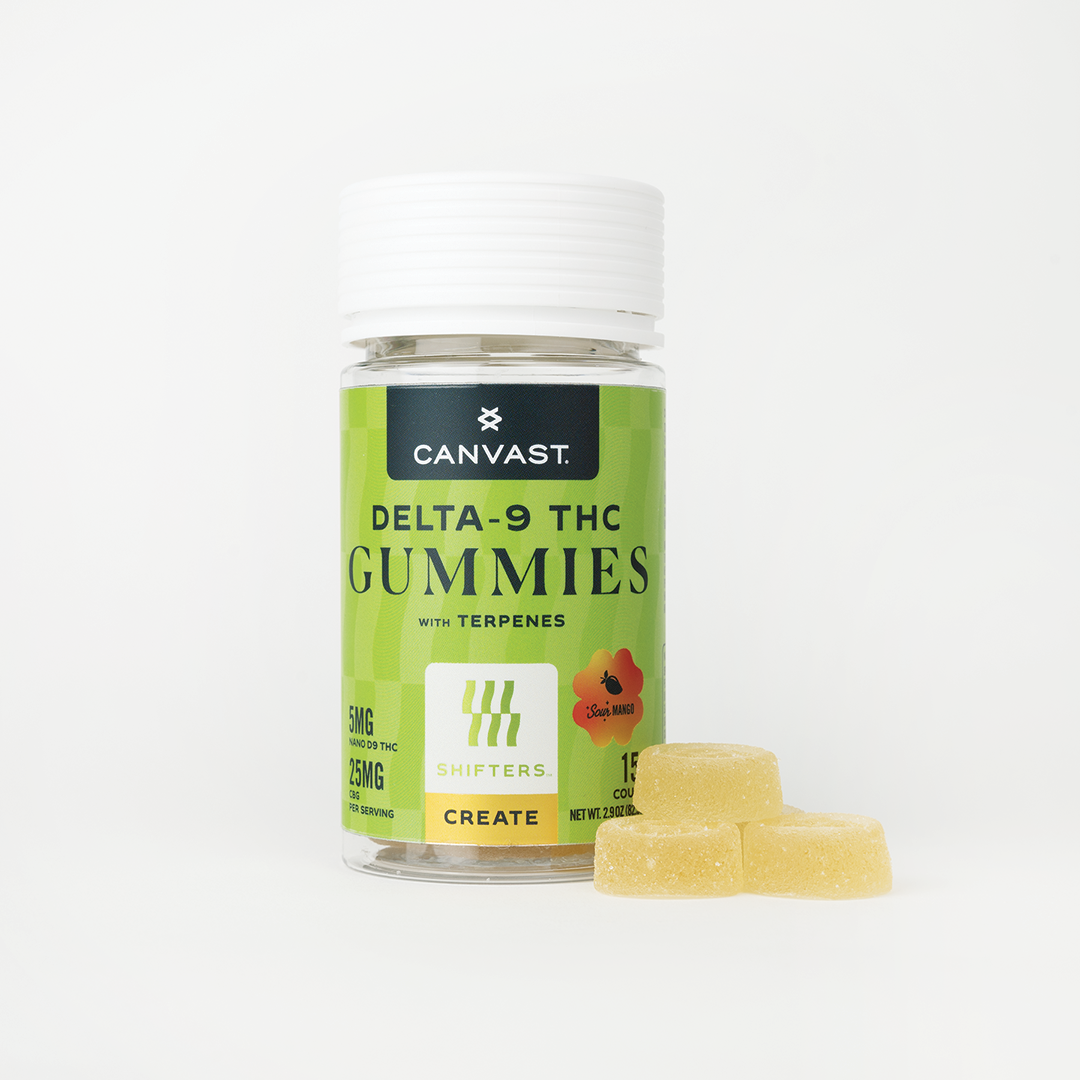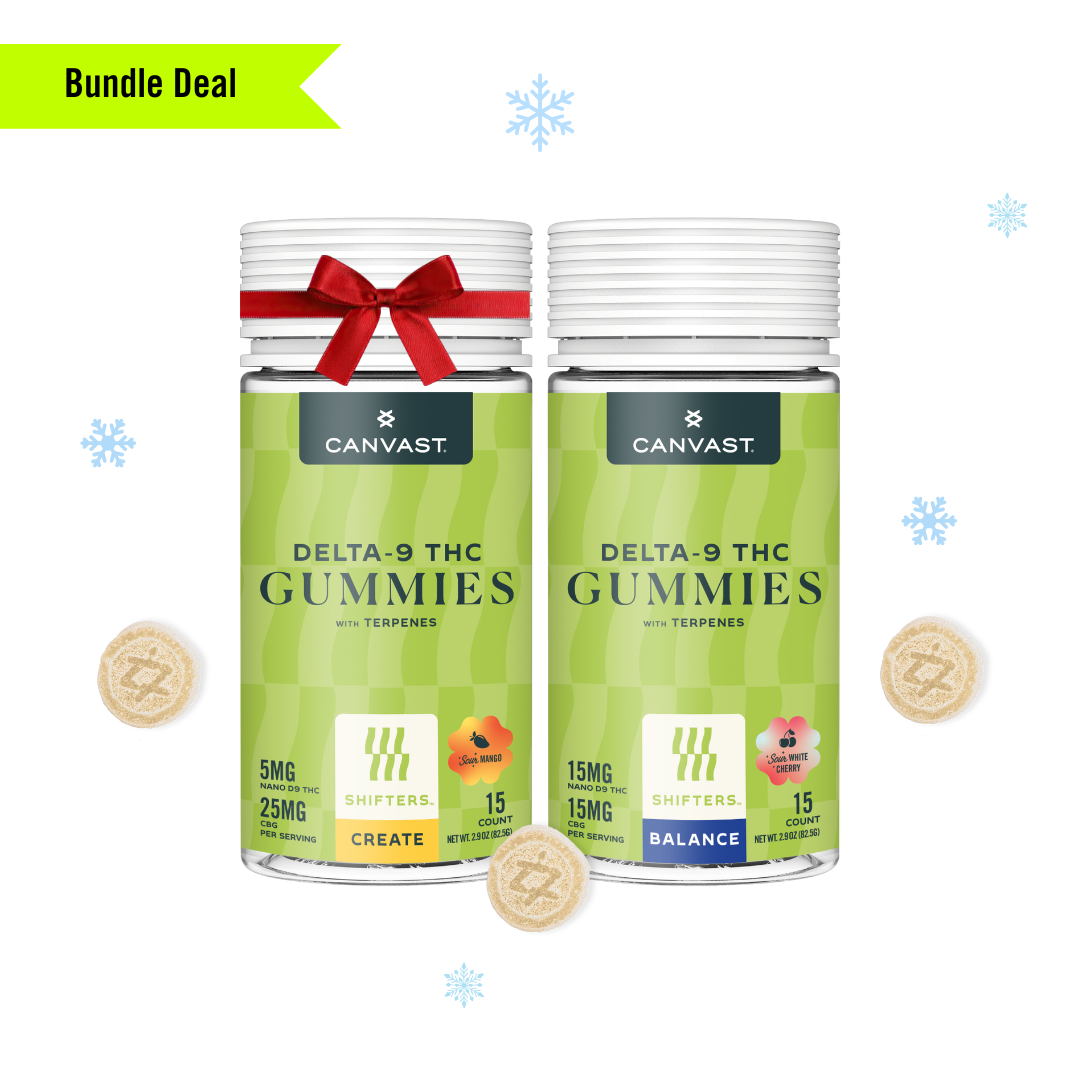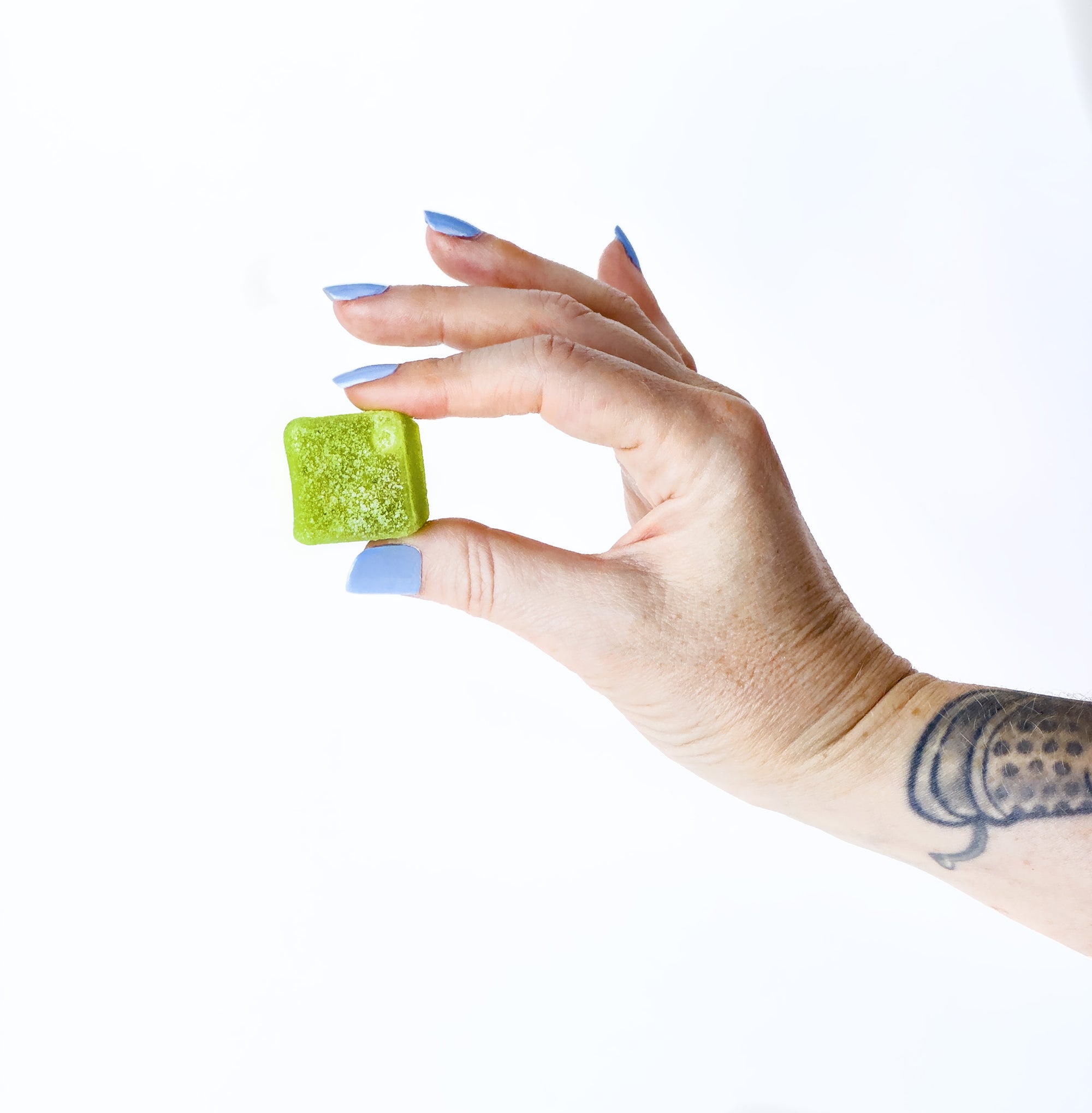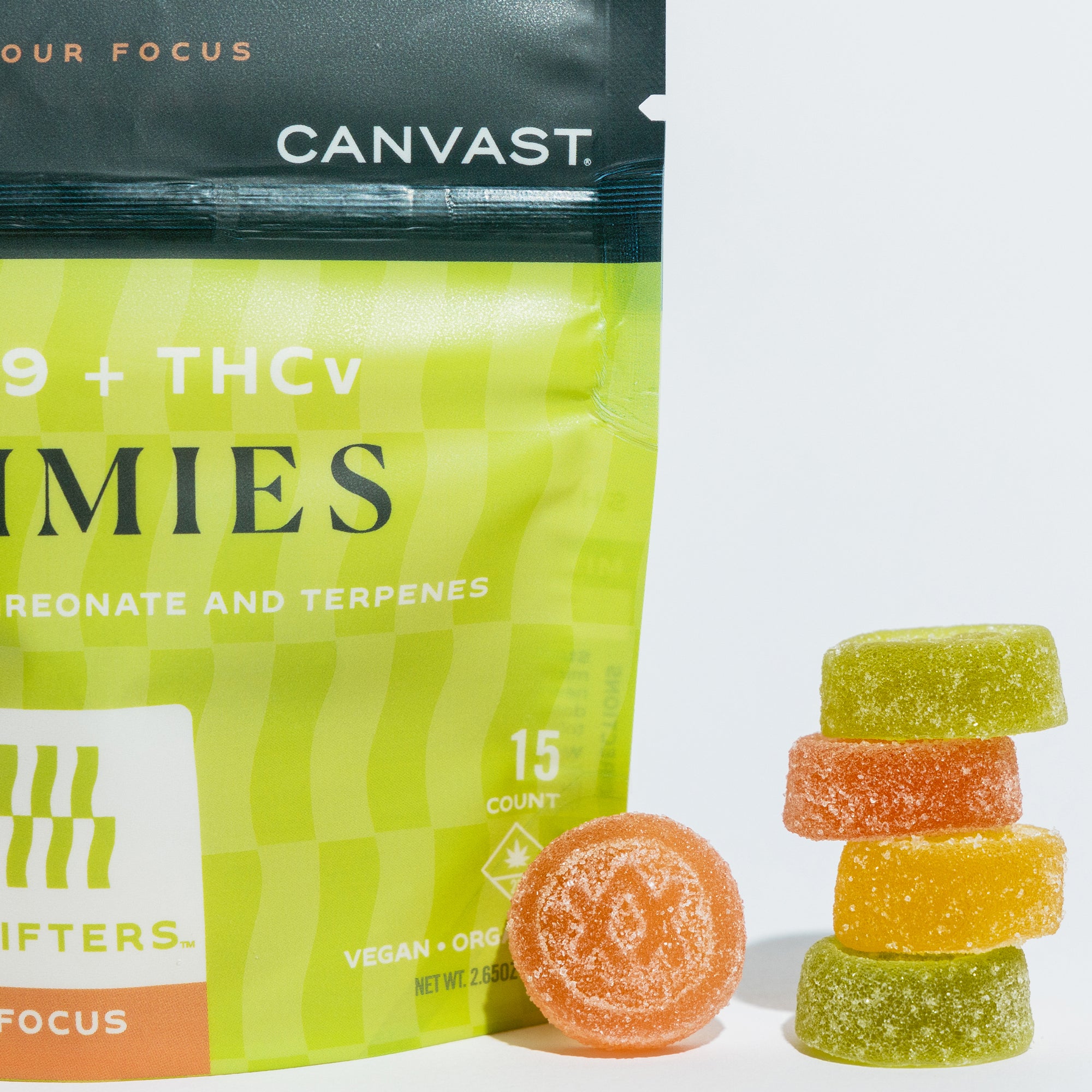As cannabis continues to gain acceptance and recognition for its potential health benefits, more people are becoming curious about the differences between its key compounds, particularly THCA (tetrahydrocannabinolic acid) and THC (tetrahydrocannabinol). While these two cannabinoids may seem similar, they have very different effects on the body, making them suitable for distinct types of users. Understanding the differences between THCA and THC can help consumers make more informed decisions, whether they are seeking therapeutic benefits or recreational experiences.
At Canvast, we offer a diverse range of products that cater to both wellness enthusiasts and recreational users alike. Whether you're looking to explore the non-psychoactive benefits of THCA or seeking the euphoric effects of THC, our product lineup, including THCA flower and THC-infused gummies and hard candies, can meet your needs. In this article, we will dive deep into the characteristics of THCA and THC, explore their key differences, and help you decide which is best suited for your goals.
What is THCA?
THCA, or tetrahydrocannabinolic acid, is a cannabinoid found in raw, live cannabis plants. In its natural form, THCA is non-psychoactive, meaning it doesn’t produce the “high” commonly associated with cannabis use. THCA is the acidic precursor to THC, and it exists in abundance before cannabis is exposed to heat. When cannabis is smoked, vaporized, or heated in any way, THCA undergoes a process called decarboxylation, where it converts into THC, the psychoactive compound responsible for the intoxicating effects of cannabis.
Despite its lack of psychoactivity, THCA is gaining attention for its potential health benefits. Early research suggests that THCA may possess anti-inflammatory, anti-nausea, and neuroprotective properties, making it an appealing option for those seeking relief from chronic pain, inflammation, or conditions like arthritis. Additionally, THCA may offer benefits for neurodegenerative diseases like Parkinson’s or Alzheimer’s, though further studies are needed to fully understand its therapeutic potential.
At Canvast, we offer THCA-rich flower and pre-rolls for those who wish to experience the benefits of THCA without the psychoactive effects of THC. These products are perfect for wellness-focused consumers who prefer a natural, non-intoxicating cannabis experience.
What is THC?
THC, or tetrahydrocannabinol, is perhaps the most well-known cannabinoid due to its psychoactive properties. Unlike THCA, which is non-psychoactive in its raw form, THC is the compound responsible for the “high” or intoxicating effects commonly associated with cannabis consumption. THC is formed when THCA undergoes decarboxylation, which occurs when cannabis is exposed to heat, such as when smoking, vaping, or cooking. This conversion process alters the chemical structure of THCA, making it psychoactive and capable of binding to the CB1 receptors in the brain.
THC’s effects vary depending on the individual and the dose but typically include feelings of euphoria, relaxation, and an altered perception of time. These effects make THC popular for recreational use, but it also offers a range of therapeutic benefits. Research has shown that THC can be effective for managing conditions like chronic pain, insomnia, anxiety, and nausea. Additionally, THC is commonly used to stimulate appetite, which can be beneficial for individuals undergoing treatments such as chemotherapy.
At Canvast, we provide a variety of THC-infused products, including gummies, pre-rolls, hard candies, and other consumables that allow consumers to enjoy THC’s effects in a controlled and enjoyable manner. Whether you're seeking relaxation after a long day or looking for a mild euphoric experience, our THC gummies offer a convenient and delicious way to incorporate THC into your lifestyle.

THCA vs THC: Key Differences
Although THCA and THC come from the same cannabis plant, they have distinct differences in how they interact with the body, making them suitable for different types of users. Below, we’ll explore some of the key areas where these cannabinoids differ:
Psychoactive vs. Non-Psychoactive
THCA is non-psychoactive in its raw form. This makes it a popular choice for those seeking the therapeutic benefits of cannabis without the high. Since it doesn’t bind to the CB1 receptors in the brain, THCA won’t alter perception, mood, or mental state, allowing users to remain fully clear-headed.
THC, on the other hand, is psychoactive. It binds directly to the brain’s CB1 receptors, resulting in the euphoric and intoxicating effects commonly associated with cannabis. For recreational users, THC’s ability to alter mood and create a sense of euphoria is one of its main attractions.
Chemical Structure and Decarboxylation
While THCA and THC are closely related, their chemical structures differ slightly. THCA contains an extra carboxyl group (COOH) that is lost during decarboxylation, the process in which THCA converts to THC. This small difference in structure is what makes THCA non-psychoactive and THC psychoactive.
The decarboxylation process occurs when cannabis is heated—whether through smoking, vaping, or cooking. This is why raw cannabis doesn’t cause intoxication, but heating it does.
Interaction with the Endocannabinoid System
THCA and THC interact with the body’s endocannabinoid system in different ways. THCA does not directly bind to the CB1 receptors, which is why it doesn’t produce a high. However, it may interact with other receptors in the body, leading to its potential anti-inflammatory and neuroprotective effects.
In contrast, THC binds directly to both CB1 and CB2 receptors. This interaction is what causes the psychoactive effects, but it also triggers THC’s therapeutic benefits, such as pain relief, appetite stimulation, and anxiety reduction.
Potential Health Benefits Comparison
THCA
Known for its potential anti-inflammatory, anti-nausea, and neuroprotective properties, THCA is often used by those seeking to manage conditions like arthritis, chronic pain, and neurodegenerative diseases. At Canvast, our THCA-rich flower allows users to enjoy these wellness benefits in their most natural form.
THC
While THC is best known for its psychoactive effects, it also offers a range of therapeutic benefits. It’s commonly used to manage pain, stimulate appetite, alleviate nausea, and promote relaxation. For those looking to harness THC’s therapeutic effects, Canvast’s THC-infused gummies and pre-rolls are popular choices.
THCA vs THC: Which is Stronger?
When it comes to comparing the strength of THCA and THC, it’s important to define what “strength” means in this context. Strength can refer to psychoactive potency—the ability of a cannabinoid to produce intoxicating effects—or to the overall therapeutic impact it has on the body. Let’s break down the comparison between THCA and THC:
Psychoactive Potency
THCA in its raw form is not psychoactive, meaning it does not produce the intoxicating effects that are often associated with cannabis use. As such, from a psychoactive perspective, THCA is not considered “strong” at all. It is an ideal option for those who want to experience the therapeutic effects of cannabis without feeling high.
THC, by contrast, is highly psychoactive and known for its ability to produce a euphoric high. Its potency can vary depending on the strain and method of consumption, but in general, THC is much stronger in terms of psychoactive effects. When users consume THC, whether through smoking, vaping, or edibles, the high can range from mild to intense, depending on the dose.
Therapeutic Strength
While THC is stronger in terms of psychoactive effects, THCA may be just as powerful when it comes to therapeutic benefits, though in different ways. THCA is gaining recognition for its potential anti-inflammatory, neuroprotective, and anti-nausea properties. For those seeking relief from conditions like chronic pain or inflammation without the high, THCA can be just as effective, if not more desirable, for daily use.
Potency After Decarboxylation
When THCA is heated, it converts into THC, effectively increasing its psychoactive strength. In other words, raw THCA can become as strong as THC once decarboxylated. This is why users who consume cannabis through methods like smoking or vaping experience the psychoactive effects—they are no longer consuming THCA, but rather THC.
For consumers who want to explore the benefits of both THCA and THC, Canvast offers a range of products that cater to these preferences. For a non-psychoactive experience, our THCA flower and pre-rolls provide a natural way to harness the benefits of THCA. Alternatively, for those seeking a stronger psychoactive experience, Canvast’s THC-infused gummies offer a controlled and enjoyable way to experience THC’s effects.
Common Uses of THCA and THC
THCA and THC each have their own set of applications, and users may choose one over the other based on their personal goals, whether for wellness, therapeutic use, or recreational purposes. Below, we’ll look at the common uses for each cannabinoid and how Canvast’s product offerings allow consumers to make the most of these cannabinoids.
Common THCA Uses
THCA is increasingly recognized for its wellness benefits, particularly its anti-inflammatory and neuroprotective properties. It’s often used by individuals seeking relief from conditions like arthritis, chronic pain, or inflammatory disorders. As mentioned publicly by Bud Bros Hemp, some recent studies also suggest that THCA may help with nausea and muscle spasms, making it a versatile option for therapeutic use.
At Canvast, our THCA flower is popular among users who prefer raw cannabis consumption to harness these benefits without the psychoactive effects. Additionally, our THCA pre-rolls provide a convenient way for consumers to enjoy the benefits of THCA in a smokeable format without the high.
Common THC Uses
THC is widely known for its psychoactive properties, making it the cannabinoid of choice for recreational users. Its ability to produce feelings of euphoria, relaxation, and altered sensory perception makes it appealing for those looking to unwind, socialize, or simply enjoy a more lighthearted cannabis experience. THC’s effects can vary in intensity depending on the dose and method of consumption.
For those seeking a recreational experience, Canvast’s THC-infused gummies and pre-rolls provide a controlled, enjoyable way to explore the psychoactive effects of THC. Our gummies, in particular, are ideal for users who prefer a tasty, measured dose of THC without the need to smoke.
Beyond its recreational use, THC is also widely used for its therapeutic effects. It’s commonly recommended for managing chronic pain, anxiety, insomnia, and nausea. THC is particularly beneficial for individuals undergoing treatments like chemotherapy, as it can help stimulate appetite and reduce nausea.
Canvast offers a range of THC products designed to support both recreational and therapeutic needs, including our pre-rolls, which allow users to quickly and conveniently consume THC, and gummies, which offer a more long-lasting effect.
Choosing Between THCA and THC
Deciding whether to use THCA or THC ultimately depends on your individual goals, lifestyle, and how you prefer to experience the benefits of cannabis. Both cannabinoids offer unique advantages, so it’s important to understand which is better suited for your needs.
Desired Effects
If you’re looking for the wellness and therapeutic benefits of cannabis without the psychoactive effects, THCA is a great option. It’s ideal for those who want to manage pain, inflammation, or other health concerns while remaining clear-headed and functional. THCA’s non-psychoactive nature makes it suitable for daytime use or for individuals who prefer a more natural approach to cannabis.
For users seeking a more traditional cannabis experience, THC is the go-to choice. It offers a range of psychoactive effects, from relaxation and euphoria to enhanced sensory perception. THC is best suited for recreational users or those seeking relief from conditions like insomnia, anxiety, or chronic pain. However, because it’s intoxicating, THC is better reserved for times when you can relax and enjoy the effects.
Method of Consumption
THCA is typically consumed in its raw form, making products like THCA flower and pre-rolls ideal for users who want to maintain its non-psychoactive state. These products provide a natural, unaltered experience that delivers all of the cannabinoid’s wellness benefits without the high.
THC is often consumed via smoking, vaping, or ingesting edibles like gummies. Each method offers different onset times and effects, with gummies providing a longer-lasting, slower-onset experience. Canvast’s THC gummies are a convenient and tasty way to enjoy the effects of THC in a controlled dosage.
Final Thoughts on THC vs THCA
THCA and THC are two distinct cannabinoids with different effects, making them suitable for different types of consumers. While THCA offers therapeutic benefits without the high, THC provides both recreational and therapeutic value with its psychoactive properties. Whether you’re looking to stay clear-headed and focused with THCA or seeking relaxation and euphoria with THC, Canvast offers a wide variety of products to meet your needs.
Explore Canvast’s range of THCA and THC products to find the perfect fit for your wellness or recreational routine. With options like THCA-rich flower for a natural approach, or THC gummies for a fun, controlled experience, Canvast has you covered.
